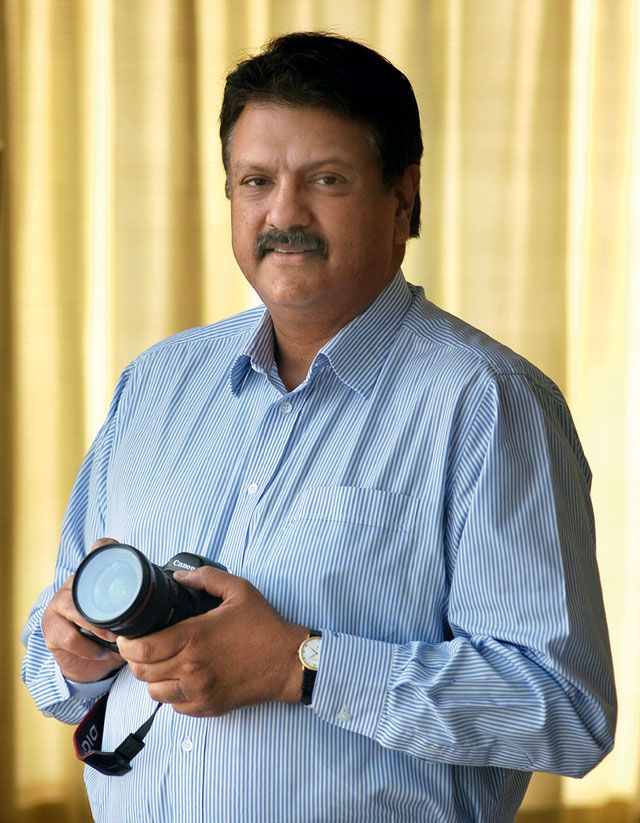A CAMERA CAN SAVE YOUR DAY. Sandeep Menon, country head of IT firm Novell India, and his friends were exploring the jungles in Assam in 2005 when militants mistook their vehicle for an army Jeep and surrounded them. To convince them that he and his friends were, in fact, just tourists, Menon took out his camera and showed them photos from the trip. Suddenly the mood changed.
Menon is one of many executives in corporate India who have taken up photography as a break from the daily grind. Menon—who believes that in today’s world success comes to well-rounded individuals—started taking photographs to capture the beauty of the landscape he passed through on his treks. Now he favours wildlife photography and has an array of lenses and accessories such as a Manfrotto tripod to ensure his Canon 7D stays stable while clicking.
Similarly, Umang Bedi, managing director, sales and marketing, South Asia, Adobe Systems, loves photographing land and waterscapes, especially if there are shades of turquoise, his favourite colour. Bedi believes that senior executives get into photography because it offers a chance to observe and absorb the world, one frame at a time. “The human mind is not capable of capturing every shade of the world the way a 35 mm lens can. Most executives run around the world and miss out on the larger picture. Photography helps us pause and analyse,” reasons Bedi, who is on the road for 275 days in a year.

It isn’t just young executives who are buying cameras (Bedi and Menon are both in their thirties). Mukesh Ambani is a keen photographer and owns a Canon 1D, says Alok Bharadwaj, senior vice president, Canon India. Ace photographer Atul Kasbekar says that if this trend is for real, it’s because photography can be therapeutic.
Ajay Piramal, chairman, Piramal Healthcare says that relaxing with photography helps him become a better businessman. Shooting with his Canon 5D Mark II camera and six lenses have helped him spot “hidden aesthetics in everyday objects and people”. Piramal adds that “every moment and every object has a quality—to understand that in a fleeting moment and capture it for posterity gives me the joy of creation”.
Another possible reason that corporate heads are adopting cameras with such enthusiasm is that, thanks to digital technology, photography is not as time consuming as it used to be. In the days of the film roll, the process began by ensuring that each picture was composed well, and then there was the wait for the film to be developed, with the anxiety of not knowing whether the desired results were achieved. While purists say that some of the romance has gone out of photography, most are happy to say ‘cheese’, focus, and immediately see whether a second take is needed.
Manufacturers Nikon and Canon are certainly not complaining: When C-suite executives buy, their initial purchase of equipment can be upwards of Rs 2 lakh. Both companies have seen dramatic increases in the sales of digital single lens reflector (DSLR) cameras. Bharadwaj says, “Selling to the top guys is often tougher than selling to young techies because they have honed their skills in negotiations over the years. But it remains profitable because they buy more lenses and high-end cameras.”

Canon India’s sales have grown exponentially over the past few years. Bharadwaj says the company expects the Indian market for DSLR cameras to reach a million units by 2015. This mirrors a trend in overall camera sales which are expected to touch 12 million units, from the current 3.2 million units, in 2015. That would make the segment worth close to Rs 10,000 crore in four years. The company is also looking at focussed marketing through industry conclaves, following what it calls an “amazing response” after its tie-up with the Chief Information Officer Forum in Mumbai, where they had several of their cameras and lenses on display.
In creative industries such as advertising and design, photography has been a way of life. For executives in other sectors, it is now a way to express themselves creatively.Some have had their photography skills passed down generations. Malvinder Mohan Singh, group chairman of Fortis Healthcare, has been dabbling with the lens for more than three decades. “I was influenced by my father and my maternal grandfather,” he says, “both of whom were avid and talented photographers. I remember how, at the start of every family holiday, I would carefully pack my camera bag with an assortment of camera bodies, lenses, and filters.”
So what do they photograph? For a large number of these executives, it is shooting wildlife that gives them a kick. Nimish Soni, the executive director for Asian offshore services at BPO firm Xchanging, is happy to invest in special equipment for a good photograph. Soni loves capturing nature, the Himalayas, and wildlife. He carries a Nikon D90 with a 85mm lens for when he visits Ladakh and uses a Canon Powershot D10 waterproof camera when he goes diving.

Singh, on the other hand, is no longer interested in landscapes and scenery. Instead he shoots people and portraits. “Facial expressions now form my primary interest and my favourite subjects are my three young daughters,” he says. For Avi Basu, founder, president and chief executive of Connectiva Systems, who has a Nikon D700 and six lenses, travelling for business helps his photography as it gives him new subjects to capture every day. Basu is planning a series of photographs based on comparing life in pairs of cities, such as New York and New Delhi or London and Kolkata.
While most of those interviewed say they do not consider photography a fad, Menon fears that there are many executives who buy a camera when influenced by others in their circle, only to lose interest after a short time. However, for those who are hooked, it’s a passion for life.










Leave a Comment
Your email address will not be published. Required field are marked*